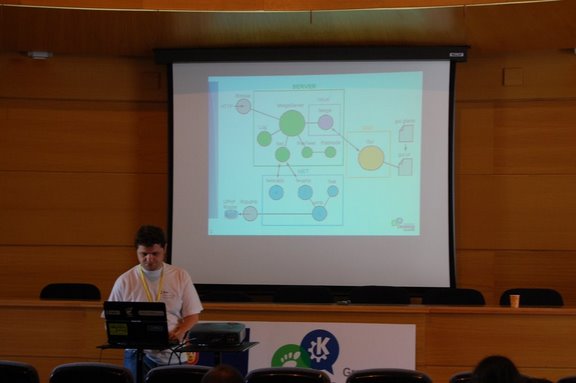After some inactivity time, I’ve started to devote time to Meiga again and developed a set of new cool features, apart of solving some bugs. The result is this new 0.3.0 release.
The most significant new feature is the support for multiple forwarding backends. Now the user can choose not only UPnP, as before, but also SSH forwarding or no forwarding at all (direct connection). What the new SSH forwarding backend does is to connect to a central SSH server and forward the Meiga serving port on it. This way, all the users in the remote SSH server or having direct connection to it, can access to the forwarded port. This connectivity for users having direct visibility of the server is only possible if it’s allowed by the SSH server configuration, though.
The second new feature is the addition of “Share on Meiga…” context menus for Nautilus and Konqueror. That way you don’t have to bother about finding the right folder path in the file selector. For improved security, this context menu will only work if Meiga is already running. No share will ever be served without the user noticing it by seeing the Meiga icon shown in the system tray.

The rest of the changes are minor fixes or collateral changes needed to implement the main ones.
I hope you to enjoy this new version. As always, it’s available for download from: http://meiga.igalia.com
 This weekend I’ve taken advantage of our hackfest sessions at Igalia winter summit and have prepared a new “Halloween” version of Meiga.
This weekend I’ve taken advantage of our hackfest sessions at Igalia winter summit and have prepared a new “Halloween” version of Meiga.
